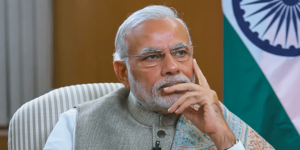The Reserve Bank of India (RBI) on Thursday said it has decided to put in place a regulatory framework to permit default loss guarantee arrangements in digital lending.
Governor Shaktikanta Das announced the move during the Monetary Policy Committee (MPC) meeting, bringing in much-needed relief to many fintech companies awaiting clarity over their respective lending arrangements with banks and NBFCs.
The FLDG (First Loan Default Guarantee) model is a lending arrangement between banks/NBFCs and a fintech or a lending service provider (LSP), where the latter compensates the former in case a borrower defaults. The fintechs would provide a guarantee to compensate for up to a certain percentage of default in a loan portfolio.
The model was struck by the RBI’s digital lending guidelines issued in August last year and was put under examination by the regulator since then.
“Based on extensive consultations with various stakeholders, and in tune with our objective of maintaining a balance between innovation and prudent risk management, it has been decided to put in place a regulatory framework for permitting Default Loss Guarantee arrangements in Digital Lending. Detailed guidelines on the matter will be issued separately,” stated the RBI’s Statement on Developmental and Regulatory Policies.
It will further facilitate an orderly development of the digital lending ecosystem and enhance credit penetration in the economy, it added.
The absence of regulatory clarification had pushed fintech companies to either stall operations or explore other options such as co-lending small ticket loans, co-branded partnerships, and alternative mechanisms like revenue-sharing models.
eRuPi: Individuals and PPIs also can issue vouchers
Meanwhile, RBI has allowed non-bank prepaid payment instruments (PPI) issuers to issue e-RuPi vouchers—a cashless voucher-based mode of payment—which beneficiaries can redeem at merchants who accept e-rupee by scanning the QR code or using the code received on SMS on their phone. It requires no card, app, or net banking.
At present, purpose-specific e-RuPi vouchers are issued by 11 banks in partnership with the National Payments Corporation of India (NPCI) for specific reasons, including payment of hospital bills, etc.
The central bank also proposed to enable the issuance of e-RuPi vouchers on behalf of individuals to simplify the process of issuance and redemption.
“These measures will make the benefits of e-RuPi digital voucher accessible to a wider set of users and further deepen the penetration of digital payments in the country,” RBI said.
Further, e-RuPi is associated with acquiring apps, including BharatPe, PNB Merchant Pay, BHIM Baroda Merchant Pay, Pine Labs, and YoNo SBI Merchant Pay. Most importantly, there are tie-ups with more than 1,600 hospitals that can redeem e-RuPi.
More organisations, including corporates, are expected to join hands in future.
Banks can now issue RuPay prepaid forex cards
While highlighting the gaining acceptance of RuPay debit and credit cards abroad, the RBI governor said the regulator will allow the issuance of RuPay prepaid Forex cards by banks in India to use at ATMs, PoS machines, and online merchants overseas.
Additionally, RuPay debit, credit, and prepaid cards will be allowed to be issued in foreign countries and can be used internationally, including in India.
This decision will expand the payment options for Indians travelling abroad, along with expanding the reach and acceptance of RuPay cards globally. Necessary instructions will be issued separately, the RBI said.
“RuPay debit and credit cards issued by banks in India have gained international acceptance through bilateral arrangements with international partners and co-badging arrangements with international card schemes. In order to expand payment options for Indians travelling abroad, it has been decided to allow issuance of RuPay Prepaid Forex cards by banks in India for use at ATMs, PoS machines, and online merchants overseas,” the statement read.



![Read more about the article [Funding alert] Biocraft Innovation Technology raises undisclosed pre-seed round from JITO Angel Network](https://blog.digitalsevaa.com/wp-content/uploads/2021/07/Untitled-11561552442504-300x150.png)
![Read more about the article [Startup Bharat] How these Indore entrepreneurs are solving India’s unstructured addressing system](https://blog.digitalsevaa.com/wp-content/uploads/2021/12/Co-founders-Pataa-1639569737482-300x150.png)





